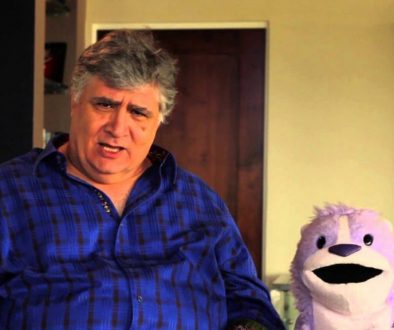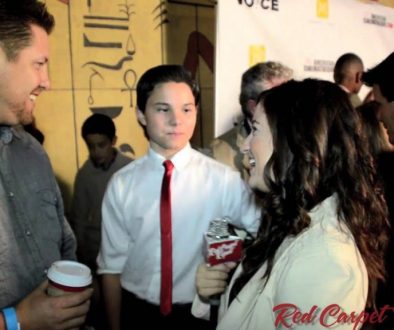From SlateV.com:
The ’00s were the decade in which movie stars discovered how to make big money in TV commercials without actually having to appear on screen [via] uncredited voiceovers.
Click here for their video trivia challenge featuring 10 celebrity voices. (I scored an 8 out of 10.)
Watching this video, I was reminded of another article from Slate.com dated March 28, 2005 — The voice-over gets a make-over — in which the writer admits that he “never paid much attention to voice-overs,” yet even in 2005 he noted the industry trend toward celebrity voice casting and its impact on what the writer refers to as “non-celebrity” voice actors:
There’s no stigma attached to doing voice work anymore. It’s low-stress (no make-up or hairstyling), and with the residuals it can be amazingly lucrative. So, stars are popping up all over the place: Richard Dreyfuss for Honda. Julia Roberts for AOL. Gene Hackman for Oppenheimer Funds and Lowe’s.
How many viewers actually pick up on these famous voices? A few. And when they do, it lends a shimmer of endorsement to the brand. By now, you’re probably aware that it’s Julia Roberts’ voice in the AOL ads (either because you’ve read something, friends have clued you in, or you’ve recognized her voice on your own). This is the next best thing to having Roberts appear in an AOL ad—which will never happen.
The upshot here is that work is getting scarcer for non-celebrity voice-over artists. And the very nature of the job is changing. Agencies now ask for voice types by naming a celebrity (e.g., “We’re looking for a Rob Morrow sound here”), where they used to just ask for adjectives (like “authoritative” or “honest”). Voice-over pros must now keep track of what popular stars sound like—and determine which ones they can imitate.
I recommend reading the complete article — still very relevant today (especially for beginners and professionals) as it addresses the now-dated announcery-type sound, how to give a “celebrity read,” clients’ preference for younger-sounding voices, the expanding talent pool, and the talent’s approach to reading copy.
And on a related note, I’d like to take this opportunity to plug Campaign for Real Voices, a Facebook group “dedicated to convincing the big wigs in Hollywood to hire REAL Voice Actors to do the voice over work for their movies and games.”
The idea for this group was sparked from anime and video game voice actor Kyle Hebert‘s live chat on Stickam. Within a very short time, the group has accumulated more than 1,300 members, including 50+ professional voice actors such as noted animation VAs Michael Bell, Bob Bergen, Garry Chalk, Chris Patton, Wendee Lee, Tara Strong and Paul Eiding (just to name a few).
This is a campaign I fully support and endorse, with hopes that it will have positive impact on what has unfortunately become a celebrity-favored industry, especially in animation where “celebrities” are cast simply for their celebrity status and their presumed box office impact whereas those roles should go to the actors who give the best audition, are the best fit for the character and have the experience to back it up.
Related posts:
– 12.11.2009 — Celebrity Voice Acting Round-Up
– 8.28.2009 — Car and Driver Says Celebs are ‘Taking Over Car Commercials’
– 7.07.2009 — Trend Changing in Celebrity Voice Casting?



January 4, 2010 @ 9:30 am
in my opion is that voice over roles should go to voice over actors. they are hard working peoplewho know how to bring beliveability to the roll with just their voices
Celebrities Face ‘Special Challenges’ in Voice Acting « Voice Actors in the News
January 14, 2010 @ 5:04 am
[…] Related post: 1.02.2010 — SlateV Tests Your Ear for Celebrity Voices […]
Forbes Lists ‘Most Trusted Celebrities’ « Voice Actors in the News
January 27, 2010 @ 4:15 pm
[…] Related posts: – 1.14.2010 — Hollywood Actors Face ‘Special Challenges’ in Voice Acting – 1.02.2010 — <a href="SlateV Tests Your Ear for Celebrity Voices […]